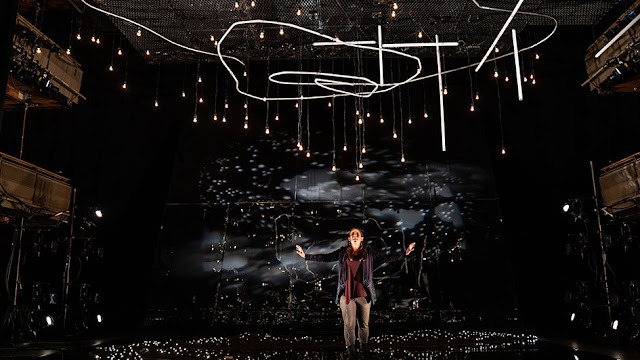Chicago's Porchlight Revisits Polishes Porter's Musical Gem
For decades, Cole Porter
was the toast of Broadway. With
successful shows such as Kiss Me Kate,
Anything Goes, and Silk Stockings along with constant flow
of hit songs cascading off his keyboard, just having Porter’s name on the
marquis was a producer’s dream. At the
urging of producers Cy Feuer and Ernest Martin, Porter agreed to pen the score
for a show set in Montmartre in the 1890s.
Written towards the end of his career, Can-Can was Porter’s “poke-in-the-eye” to the censors he felt were
holding Broadway back.
With its latest production
in its Porchlight Revisits series, Porchlight Music Theatre brings Can-Can, Porter’s irreverent homage to
the wicked revelry of Montmartre to Chicago’s Gold Coast’s Ruth Page Center for
the Arts for three high kicking performances.
Beginning its fifth year, this special series provides an opportunity
for music theatre aficionados to experience musicals that opened on Broadway,
but are no longer frequently produced.
Set in Paris in 1893, Can-Can is the story of Pistache, a Montmartre
café owner who decides to feature the then-scandalous and illicit dance, the
Can-Can, on the stage of her establishment.
Meanwhile, Aristide Forestier, a young, newly-appointed and over-zealous
magistrate, decides to undertake a reform movement and sets his sights to clean
up Paris, starting with a prohibition of the titillating dance. Pistache’s defiance of the law mixes with
love, music and dance in this musical classic which New York Times Ben Brantley
wrote “made Gwen Verdon a star.”
With music and lyrics by
Porter and a book by Abe Burrows (who also directed), the original Broadway
opened at the Shubert Theatre on May 7, 1953 and ran for over two years. A successful West End production opened the
following year, running 394 performances.
Gwen Verdon, in only her second Broadway role, and choreographer Michael
Kidd won Tony Awards and were praised, but both the score and book received
tepid reviews. No matter. The public paid little attention to the critic’s
opinions. The show quickly sold out for
months ahead. Audiences filled the
Shubert Theatre for 892 performances, making Can-Can run second only to Kiss
Me Kate among Porter’s many hits.
 |
| Tony Carter as Hiliaire and Kelly Vasquez as Pistache Photo by Austin Packard |
Working within the
physical constraints of an existing set and lights can be a logistical
nightmare. However, the Porchlight
Revisits cast and crew were up to the task.
Through the creative use of swinging doors and projections, Director Azevedo
and choreographer VanDerwerker made the stage set work. I especially appreciated the nice homage to original
designer Jo Mielzner’s iconic rooftop view of the City of Lights as it awakens
to a new day
The second act felt
stronger than the first as the cast appeared to settle more into working
through what is admittedly not Porter’s best score. The show continued to build on the energy
from act two opener “Never, Never Be an Artist” and carried through the eleven
o’clock number, “I Love Paris” and the finale “Can-Can”. As the stage filled with a growing number of
brightly colored chorus girls dancing what the Paris establishment considered
scandalous, the audience at the Ruth Page clapped along their support.
This was my first
Porchlight Revisits production. This
series is a great tribute to musical theater shows past. I look forward to future productions,
including their upcoming production of Minnie’s
Boys, a musical about the Marx Brothers scheduled for May 22-23, 2019. To learn more about Porchlight Revisits,
including showtimes and ticket availability, visit www.porchlighmusictheatre.org or calling 773-777-9884.





Comments
Post a Comment